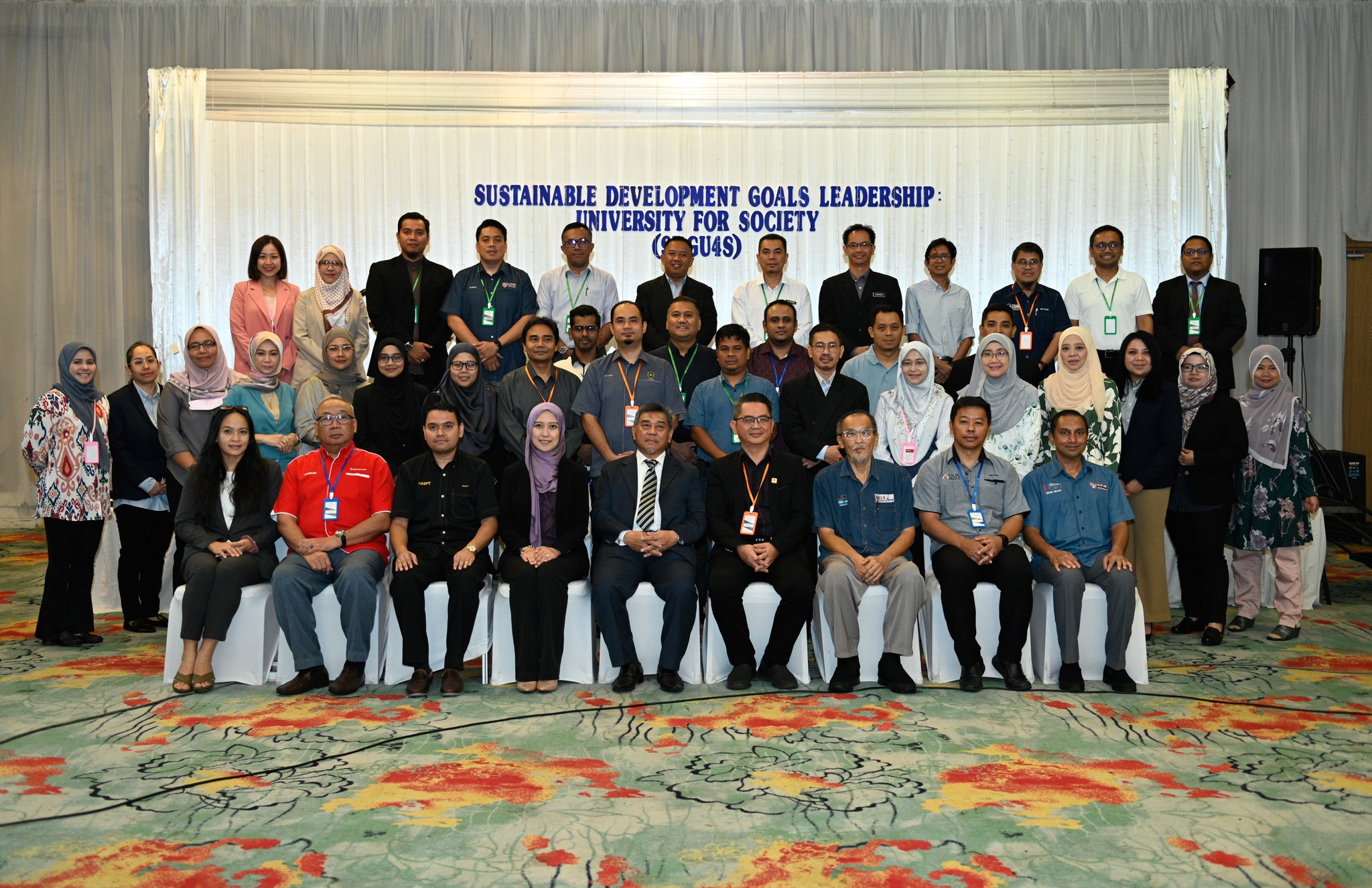 Universiti Malaysia Sabah (UMS) akan sentiasa mendukung Pelan Pembangunan Pendidikan Malaysia 2015-2025 (Pendidikan Tinggi) termasuk agenda yang digariskan pada lonjakan ketujuh iaitu Ekosistem Inovasi.
Universiti Malaysia Sabah (UMS) akan sentiasa mendukung Pelan Pembangunan Pendidikan Malaysia 2015-2025 (Pendidikan Tinggi) termasuk agenda yang digariskan pada lonjakan ketujuh iaitu Ekosistem Inovasi.
Naib Canselor UMS, Prof. Datuk Dr. Kasim Hj. Mansor berkata, ekosistem inovasi hakikatnya memerlukan perkongsian kolaboratif antara ahli akademik, industri, kerajaan dan komuniti.
“Hanya melalui perkongsian kolaboratif sedemikian, pecutan idea ke dalam pengkomersialan dapat direalisasikan sekali gus meningkatkan hasil pendapatan dan kesejahteraan hidup rakyat.
‘Sesungguhnya, UMS akan sentiasa mendukung matlamat itu untuk meningkatkan pertumbuhan ekonomi dan kesejahteraan komuniti,” katanya.
Beliau berkata demikian ketika berucap merasmikan Program Sustainable Development Goals (SDG) Leadership Kohot 2 anjuran Akademi Kepimpinan Pendidikan Tinggi (AKEPT) dengan kerjasama UMS di sini, hari ini.
Menurut Dr. Kasim, UMS juga sentiasa menggalakkan para pensyarahnya agar terus terlibat dengan komuniti di luar kampus.
Ujarnya, menerusi slogan “Leading Towards Innovative Societies”, UMS komited dalam memastikan agar keberadaannya di Sabah membantu pembangunan negeri itu yang mana kawasan luar bandarnya sangat luas dengan keadaan prasarana jalan raya yang sungguh mencabar.
“Ini ditambah pula dengan kecapaian teknologi komunikasi dan digitalisasi yang masih terbatas di kawasan pinggir-pinggir bandar dan pekan sahaja.
“Justeru, UMS baru-baru ini telah melancarkan pewujudan Living Lab atau Makmal Hidupan sebagai fasiliti penyelidikan dan pusat pemindahan ilmu secara langsung dengan komuniti sasaran.
“Living Lab ini adalah hasil daripada cetusan model kolaboratif merentas entiti yakni akademia universiti, rakan kongsi industri, agensi kerajaan dan masyarakat yang berfungsi sebagai sokongan utama untuk pembangunan dan penubuhan makmal hidupan,” jelas Dr Kasim.
Beliau menambah, menerusi model itu rakan industri memanfaatkan keupayaan akademik untuk menyokong keperluan mereka dalam menghasilkan produk yang lebih inovatif dan berdaya saing.
“Pihak kerajaan pula adalah kunci dalam menyediakan sokongan dan dasar dalam mentadbir pelaksanaan kemahiran dan produk inovatif kepada masyarakat melalui Living Lab ini.
“Misi UMS adalah untuk memastikan Living Lab ini dapat menjadi inspirasi kepada universiti lain dalam mencipta inovasi yang bermanfaat kepada masyarakat dan industri sekali gus menjadi peneraju kepada masyarakat berinovatif, atau Leading Towards Innovative Societies,” katanya.
Menyentuh mengenai program SDG Leadership ini, Dr Kasim berkata, para peserta akan didedahkan dengan keunikan yang membawa kepada kejayaan dan kelestarian beberapa komuniti di luar bandar.
Ujarnya, para peserta akan dapat mendengar dan melihat sendiri bagaimana usaha yang telah dijalankan oleh komuniti-komuniti itu dapat merubah keadaan hidup mereka.
“Pada masa yang sama juga, berdasarkan kepada ilmu dan pengalaman yang para peserta ada, saya percaya akan berlaku perkongsian ilmu secara langsung yang boleh meningkatkan lagi kemandirian komuniti dalam memperkembangkan lagi kelestarian projek-projek sosioekonomi yang sedang mereka laksanakan.
“Saya percaya, menerusi program-program latihan dan kepimpinan yang diperkenalkan oleh AKEPT seperti ini akan mampu menjadikan warga akademia sama ada di universiti awam mahupun swasta lebih mengenali keunikan komuniti, sekali gus mencipta idea untuk kemudiannya digubah menjadi inovasi yang memanfaatkan,” kata Dr. Kasim.
Hadir sama, Penolong Naib Canselor Jaringan Industri dan Masyarakat merangkap Penasihat Program, Prof. Dr. Coswald Stephen Sipaut@Mohd Nasri; Ketua Program, Prof. Madya Dr. Fatimah Ahmedy; dan Timbalan Ketua Program, Dr. Jakaria Dasan.
Program yang berlangsung selama lima hari sehingga 26 Mei 2023 itu disertai seramai 45 peserta daripada institusi pengajian tinggi awam dan swasta.
Antara penceramah jemputan termasuklah Prof. Datuk Ir. Ts. Dr. Siti Hamisah Tapsir, Prof. Dr. Mansor Abu Talib, Prof. Dr. Haslan Abu Hassan, Prof. Dr. Jennifer Chan, OKK Haji Abdul Kadir Haji Damsal dan Dr. Elia Godoong.
Penganjurannya antara lain sebagai salah satu usaha AKEPT membina kemahiran dan meningkatkan kepimpinan ahli akademik melaksanakan libatsama masyarakat.



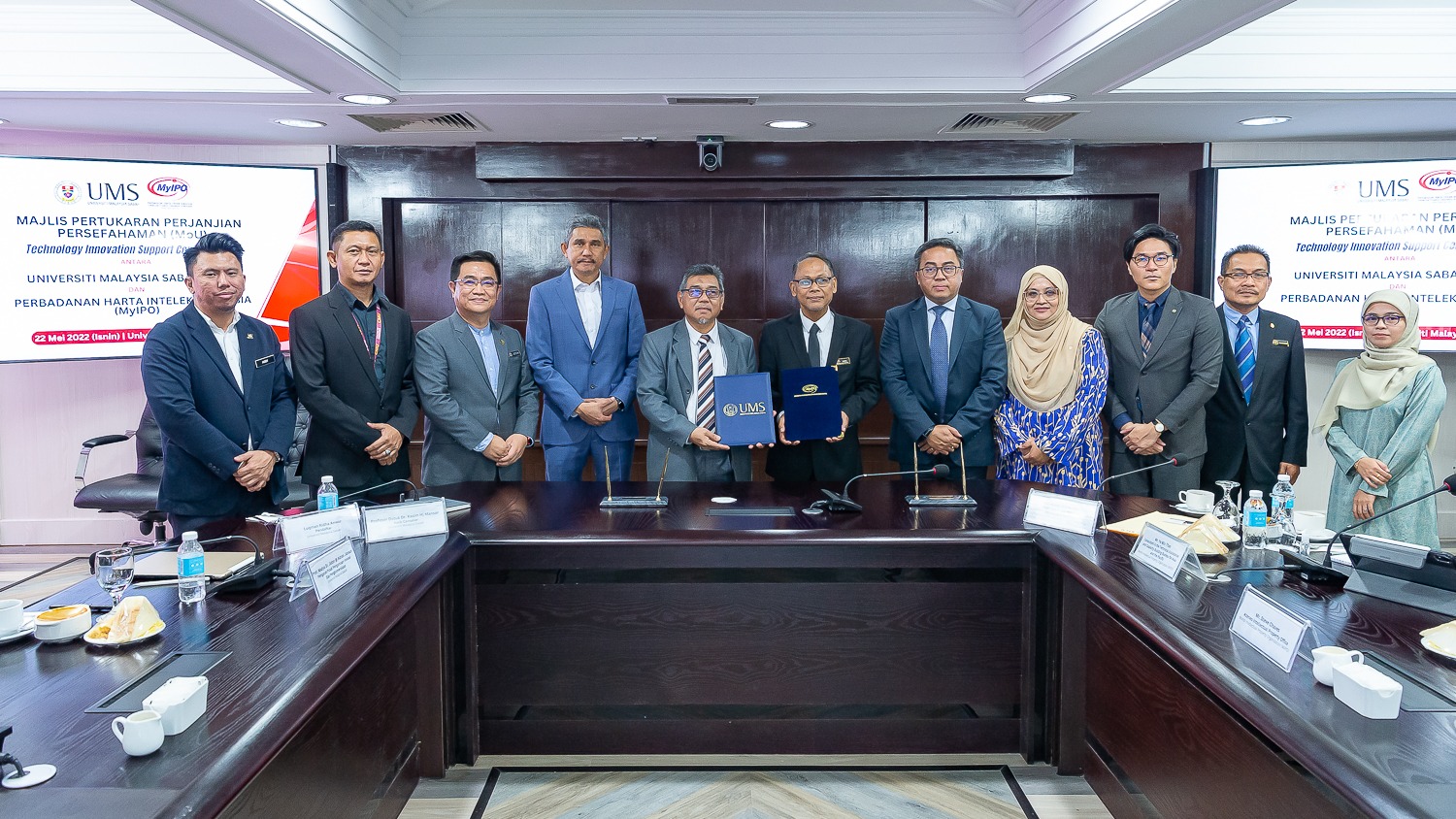 Universiti Malaysia Sabah (UMS) dan Perbadanan Harta Intelek Malaysia (MyIPO) memperbaharui Memorandum Persefahaman (MoU) bagi jalinan kerjasama strategik Program Technology and Innovation Support Center (TISC).
Universiti Malaysia Sabah (UMS) dan Perbadanan Harta Intelek Malaysia (MyIPO) memperbaharui Memorandum Persefahaman (MoU) bagi jalinan kerjasama strategik Program Technology and Innovation Support Center (TISC).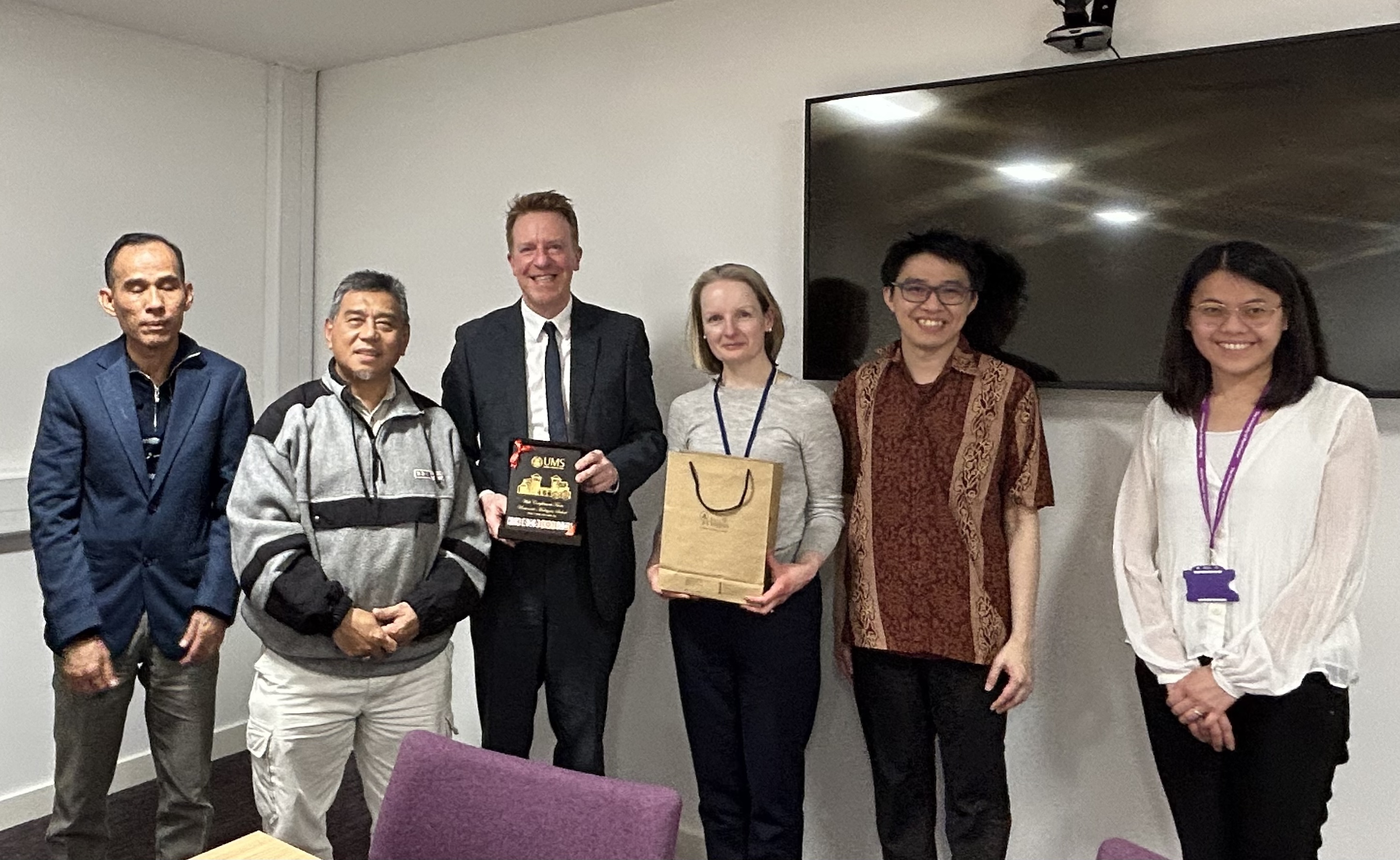 Universiti Malaysia Sabah (UMS) berhasrat untuk mengadakan kolaborasi bersama Alliance Manchester Business School (AMBS), University of Manchester, England khususnya dalam bidang ekonomi dan perniagaan.
Universiti Malaysia Sabah (UMS) berhasrat untuk mengadakan kolaborasi bersama Alliance Manchester Business School (AMBS), University of Manchester, England khususnya dalam bidang ekonomi dan perniagaan.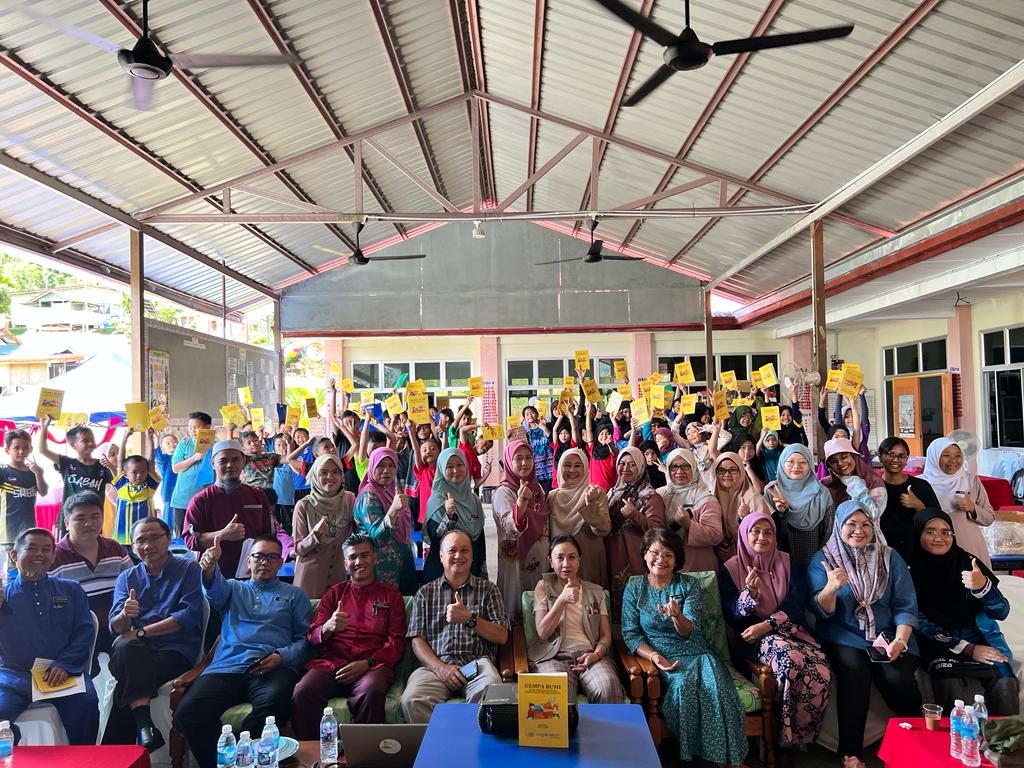 Pusat Kajian Bencana Alam (NDRC), Fakulti Sains dan Sumber Alam (FSSA), Universiti Malaysia Sabah (UMS) telah mengadakan satu Bengkel Persediaan bagi Menghadapi Bahaya Gempa Bumi kepada murid-murid di Sekolah Kebangsaan Tongou, Ranau baru-baru ini.
Pusat Kajian Bencana Alam (NDRC), Fakulti Sains dan Sumber Alam (FSSA), Universiti Malaysia Sabah (UMS) telah mengadakan satu Bengkel Persediaan bagi Menghadapi Bahaya Gempa Bumi kepada murid-murid di Sekolah Kebangsaan Tongou, Ranau baru-baru ini.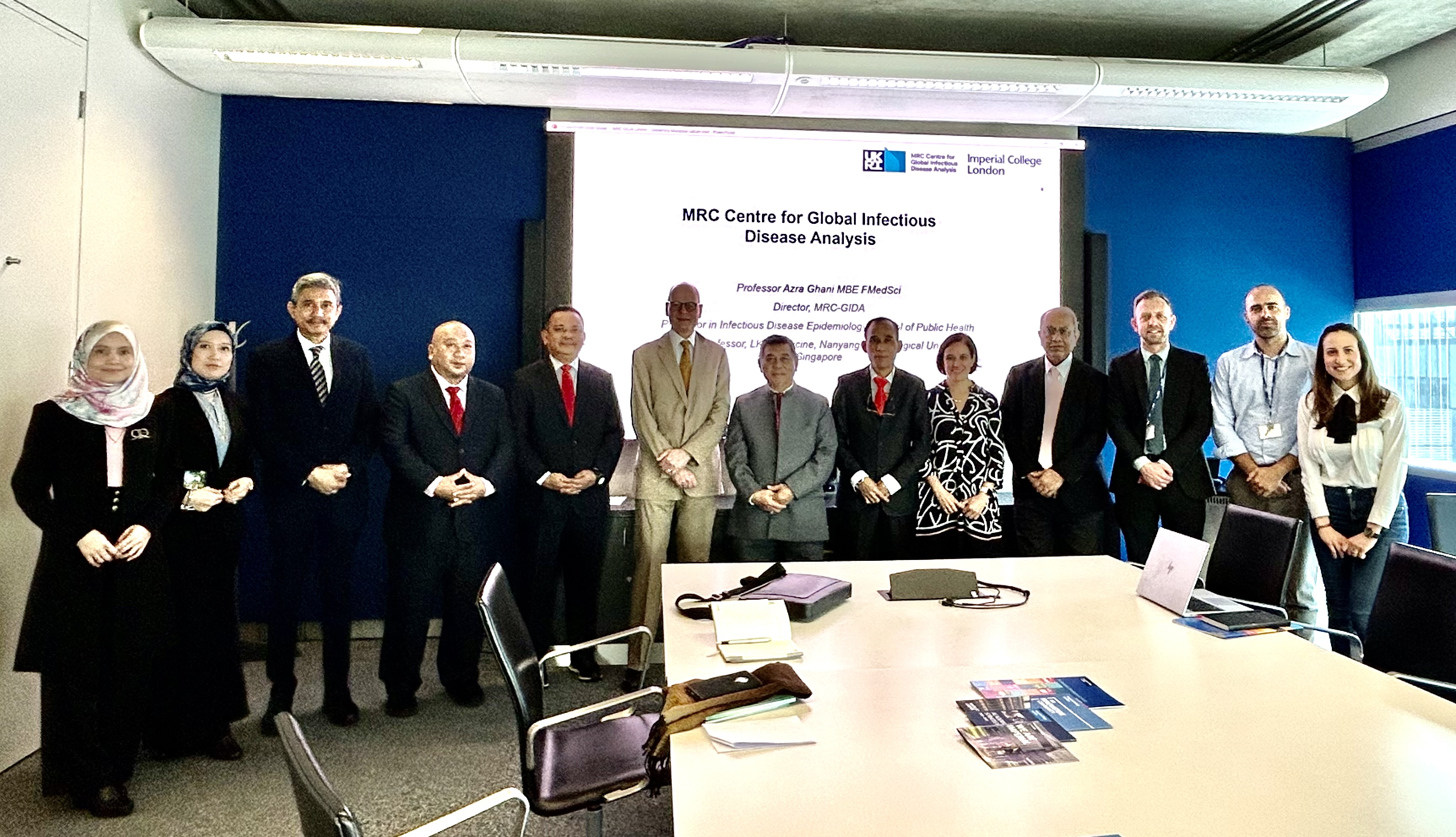 LONDON: Universiti Malaysia Sabah (UMS) mengadakan perbincangan penyelidikan bersama Imperial College (IC) di South Kensington di sini, baru-baru ini, sebagai salah satu usaha merealisasikan pembangunan sebuah Hab Inkubasi Penyelidikan dan Inovasi di universiti itu.
LONDON: Universiti Malaysia Sabah (UMS) mengadakan perbincangan penyelidikan bersama Imperial College (IC) di South Kensington di sini, baru-baru ini, sebagai salah satu usaha merealisasikan pembangunan sebuah Hab Inkubasi Penyelidikan dan Inovasi di universiti itu.